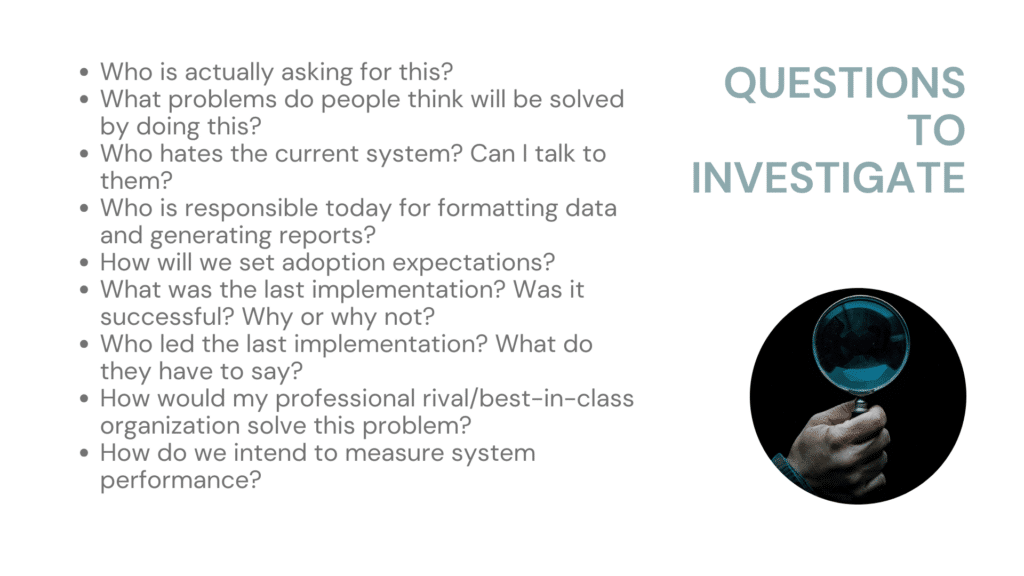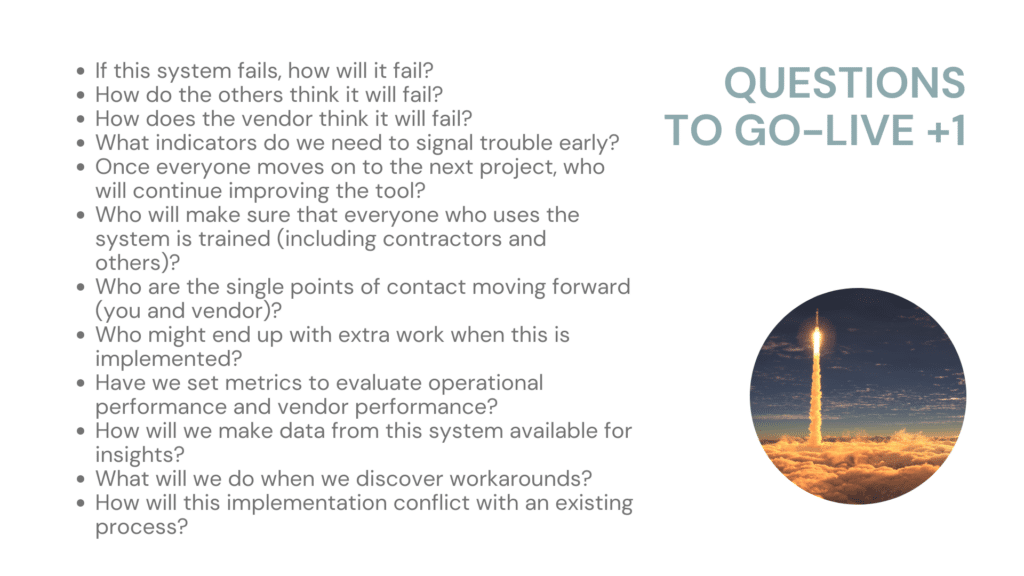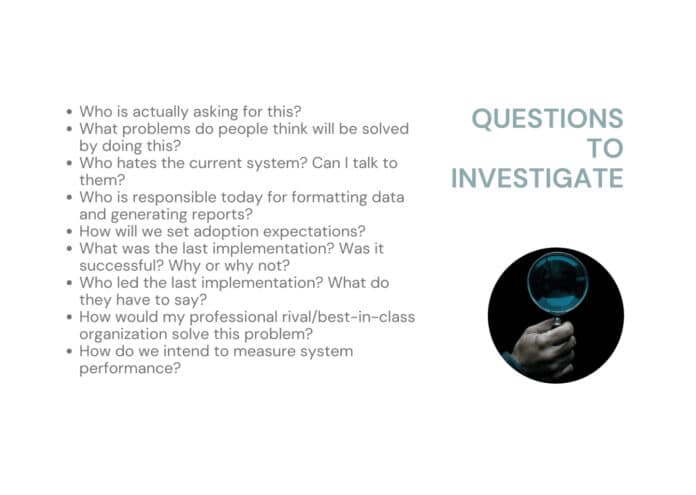Michael Kannisto has witnessed many workplace tech implementations hit roadblocks, an unfortunate experience that many HR leaders share. As the director of Mindemic Lab—a think tank focused on the future of work, technology and supporting disability in the workplace—Kannisto has a deep understanding of HR technology implementations and their common pitfalls.
While many vendors might try to avoid major flops during HR tech rollouts, Kannisto emphasizes that the periods before and immediately after implementation are just as crucial. These phases require a unique level of preparation. “One of the things that’s been very interesting to me is the fact that even though [employers] have been buying and selling HR tech solutions for a while now, [they] still encounter [their] fair share of so-called failed implementations,” says Kannisto.
In preparation for his HR Technology Online 2024 keynote session, Kannisto spoke with leaders of several organizations who ultimately felt they didn’t get exactly what they expected from their tech vendors. He says that HR tech success starts with asking the right questions, which was the title of his keynote presentation.
Lessons from past HR tech failures
Setting the stage with a dose of reality, Kannisto reminded the audience of the “awful” Horizon software implementation at the U.K. Post Office, which kicked off in 1999 to replace a paper-based accounting system. Despite the organization partnering with a reputable company and conducting due diligence, the system soon exhibited bugs and glitches, leading to reported shortfalls in customer accounts.
Sub-postmasters, who are self-employed franchisees running post office branches under contract, faced accusations of theft from the post office, which believed the system was functioning correctly. The office demanded reimbursement from personal assets and criminally prosecuted 700 sub-postmasters between 1999 and 2015, resulting in 230 imprisonments, including a pregnant woman named Seema Misra.

“Now, here’s where it gets really ugly,” said Kannisto. As far back as 2010, post office senior management was aware of problems with the Horizon software—knowledge that could have cleared the sub-postmasters of wrongdoing—but continued with their “aggressive policy of prosecution,” according to the speaker.
This story was recently highlighted in the ITV drama Mr. Bates vs. the Post Office, while a January 2024 article by Anna Kubin for CNN Business titled “Prison, bankruptcy, suicide: how a software glitch and a centuries-old British company ruined lives” explored the impact of this faulty tech rollout.
“This is about as bad as an implementation can get—a slow-motion car crash—and it highlights what can happen when an important tech upgrade isn’t done well,” said Kannisto.
Defining HR tech implementation success
Twenty-five years have passed since this example originated, and Kannisto said that today’s implementations are going to be different than those HR leaders have conducted over recent years and decades for a number of reasons. In particular, there will be more people involved.
“There’ll be more diverse expectations of what success looks like,” he added. “Now, there are so many others who show up because new HR tech is everybody’s business, and each one of the folks here has an agenda and their own way of measuring success,” said Kannisto. He pointed out that DE&I pros might see HR technology as a means to achieve their published goals. Similarly, ESG leaders may view HR tech as a tool to fulfill public commitments made by CEOs. But it’s important not to lose sight of the core reason for the implementation.
The north star of evaluating success should be that HR tech solutions should address the needs of the business. “The solution should provide maximum value to the organization over time,” said Kannisto, emphasizing that longitudinal effectiveness is of the utmost importance. He added that the solution should be configurable to reflect changes in the organization’s processes as time goes on.
According to Kannisto, there are significant variations in HR processes despite common phrases and buzzwords. The speaker said that HR practices that lack uniformity and variability can complicate successful HR tech implementations, so a baseline on process language is necessary.
Questions HR leaders should ask
According to Kannisto, HR leaders at the post office could have asked better questions in 1999, before unintended damages snowballed. He says that thoughtful inquiries could have provided insight that prevented the disastrous fallout for hundreds of people.
However, the project got ahead of proper due diligence planning. Kannisto said that modern HR tech implementation project plans have become long, elaborate and frequently updated by multiple stakeholders through shared documents. This, combined with the current focus on meeting the go-live date at all costs, makes it challenging to halt a project to address issues and dig deeply into questions.
Kannisto pointed out that projects are non-linear and sometimes require pauses to investigate unexpected problems, but it is increasingly difficult to do so in today’s environment. The speaker advised HR leaders to invest time in researching everything they can about the motivations and the history of a new implementation ahead of time, which can lay a solid framework that originates with the needs of the company and avoid work stoppages once the project lifts off.
To assist the audience with this task, Kannisto provided a comprehensive list of investigative “future proof” questions to ensure the solution is successful, “not on go-live day, but on go-live day plus one,” he said.






